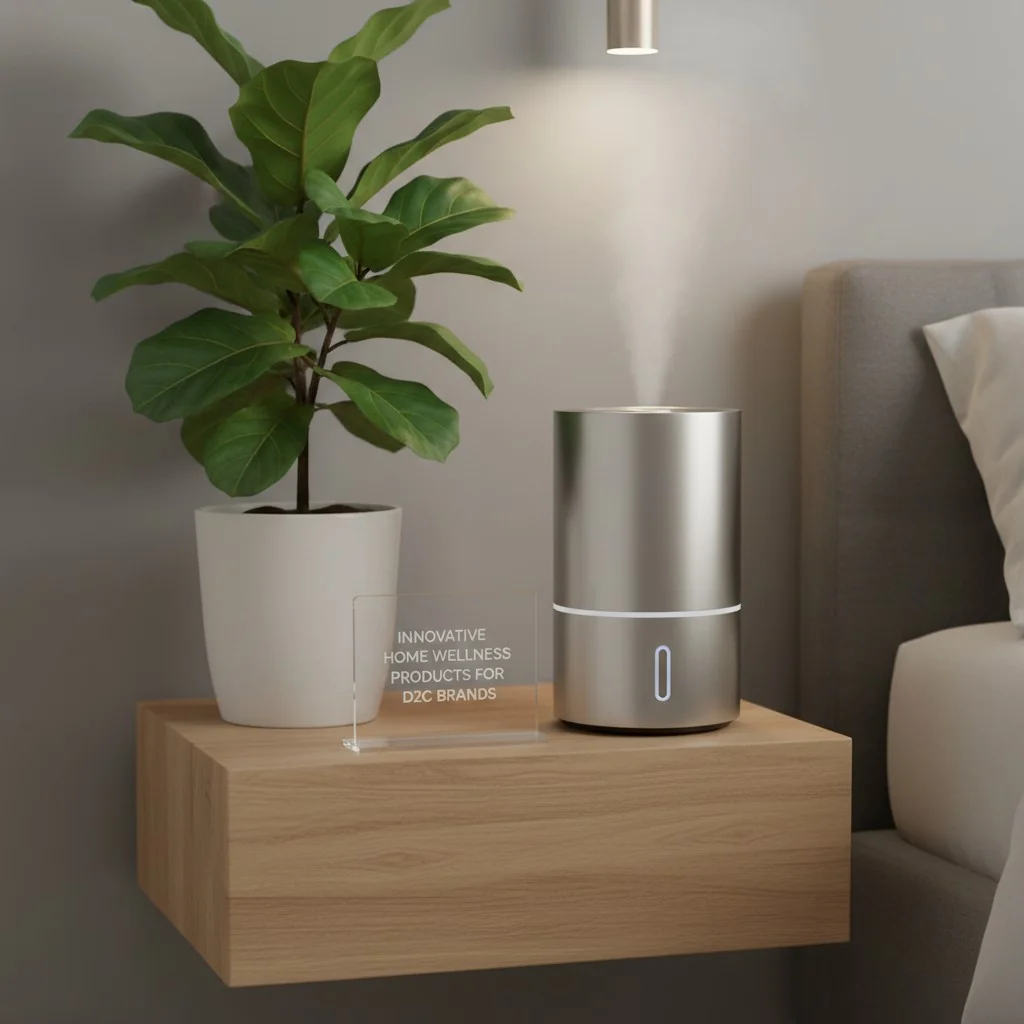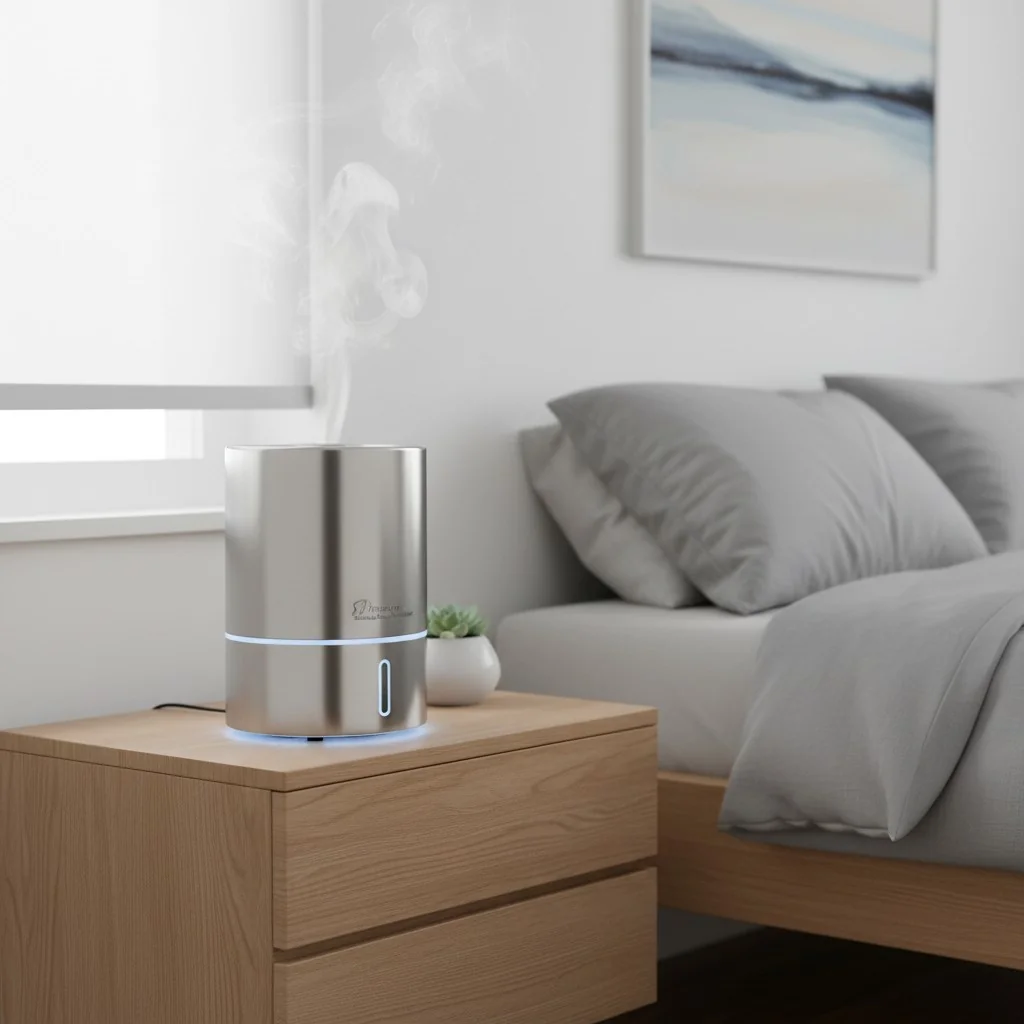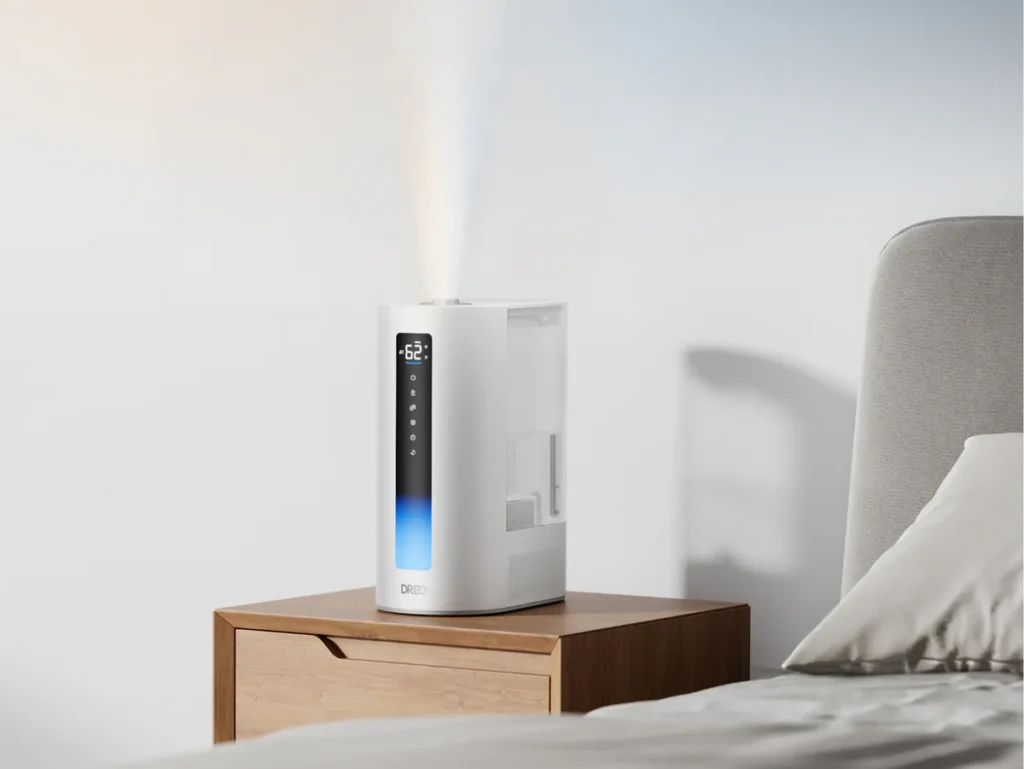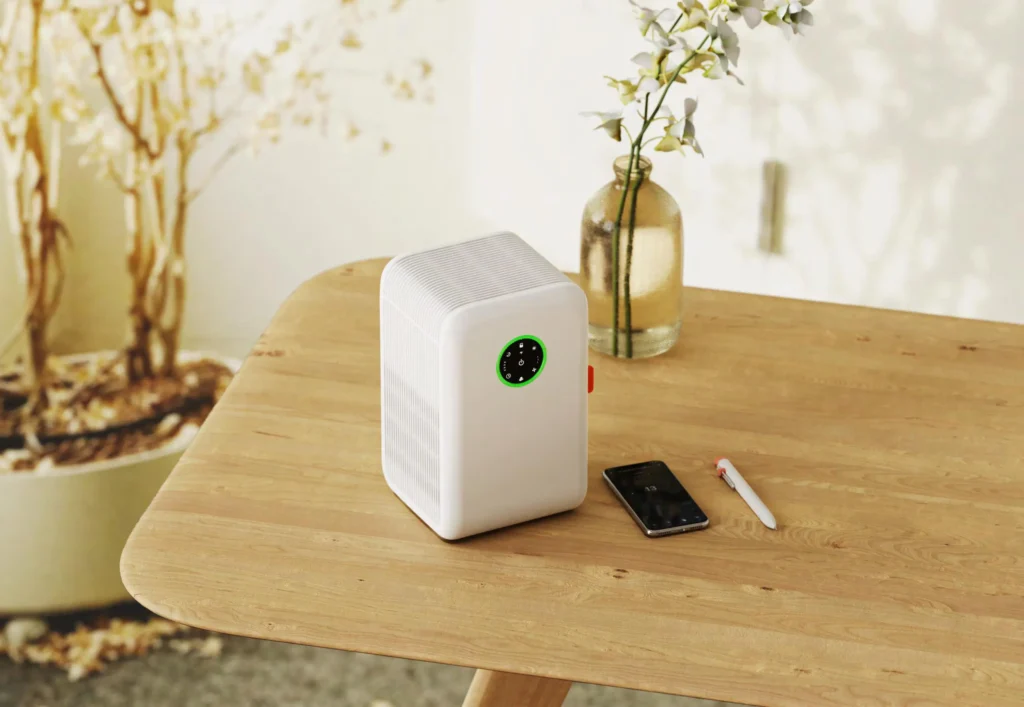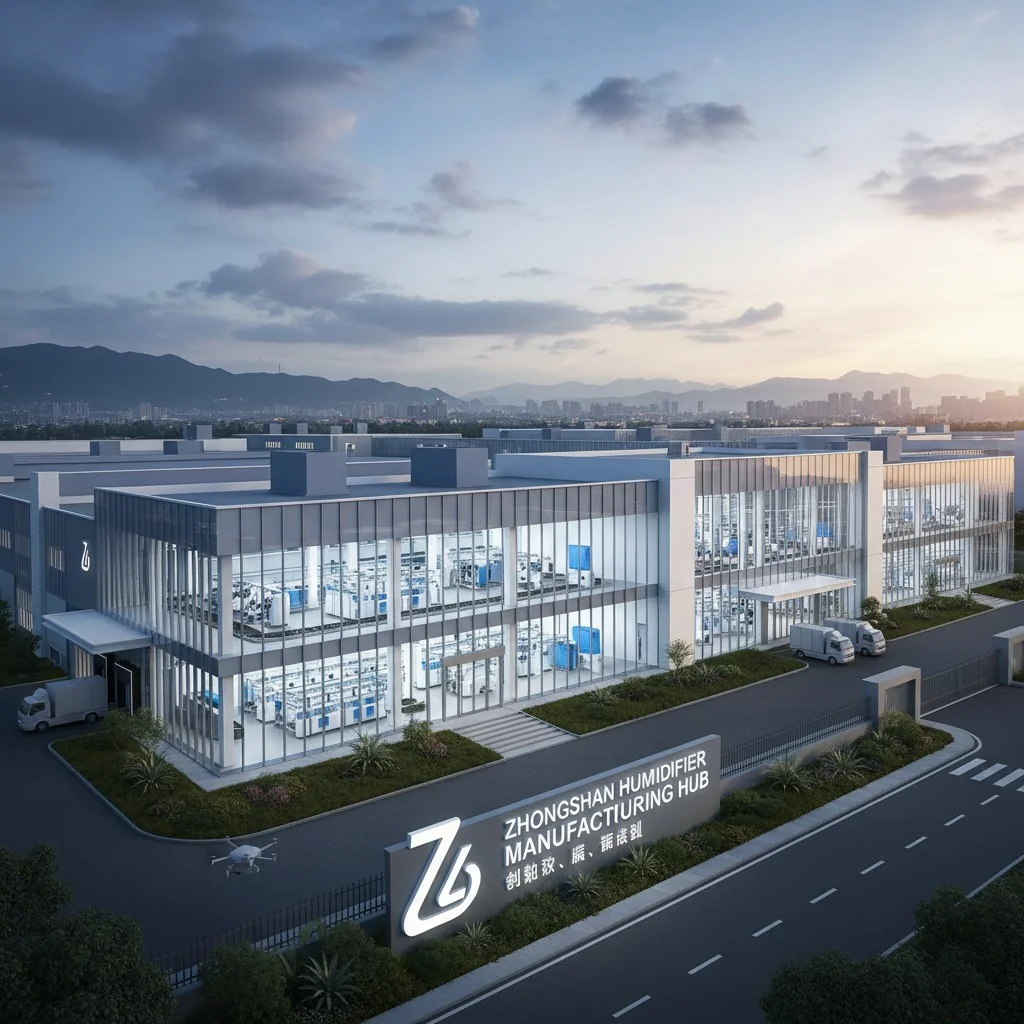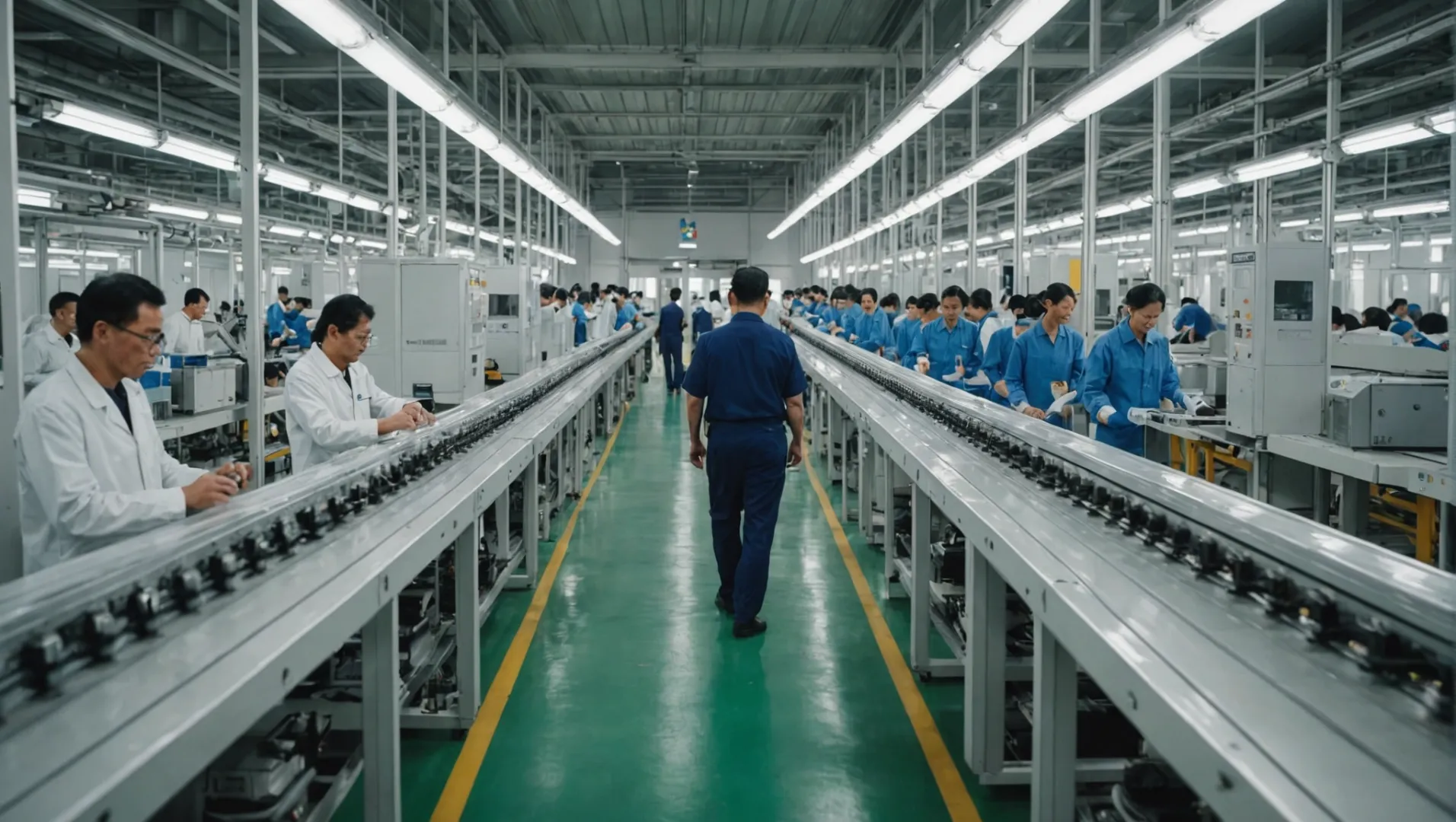
In un mondo in cui l'aria pulita sembra un lusso, mi sono spesso chiesto: il paese di origine del mio purificatore d'aria è davvero importante?
La Cina è attualmente leader nella produzione di purificatori d'aria grazie alla sua solida catena di approvvigionamento, all'esperienza produttiva e all'efficienza dei costi. Tuttavia, la Malesia sta emergendo come attore significativo con capacità crescenti e marchi importanti come Dyson che contribuiscono al mercato.
Approfondendo l'argomento, appare chiaro che, mentre la Cina detiene la corona, la Malesia non è molto lontana. Scopriamo come si posizionano questi due Paesi l'uno rispetto all'altro!
La Cina è leader nella produzione di purificatori d'aria rispetto alla Malesia.Vero
Le infrastrutture consolidate e l'efficienza dei costi fanno della Cina il leader.
Cosa rende la Cina un attore dominante nella produzione di depuratori d'aria?
Il primato della Cina nella produzione di depuratori d'aria deriva dalla sua vasta catena di approvvigionamento, dall'abilità produttiva e dall'efficienza dei costi. Ma cosa contribuisce esattamente a questo dominio?
La Cina domina la produzione di purificatori d'aria grazie alle sue ampie reti di filiera, alla sua esperienza storica e ai costi di produzione competitivi.
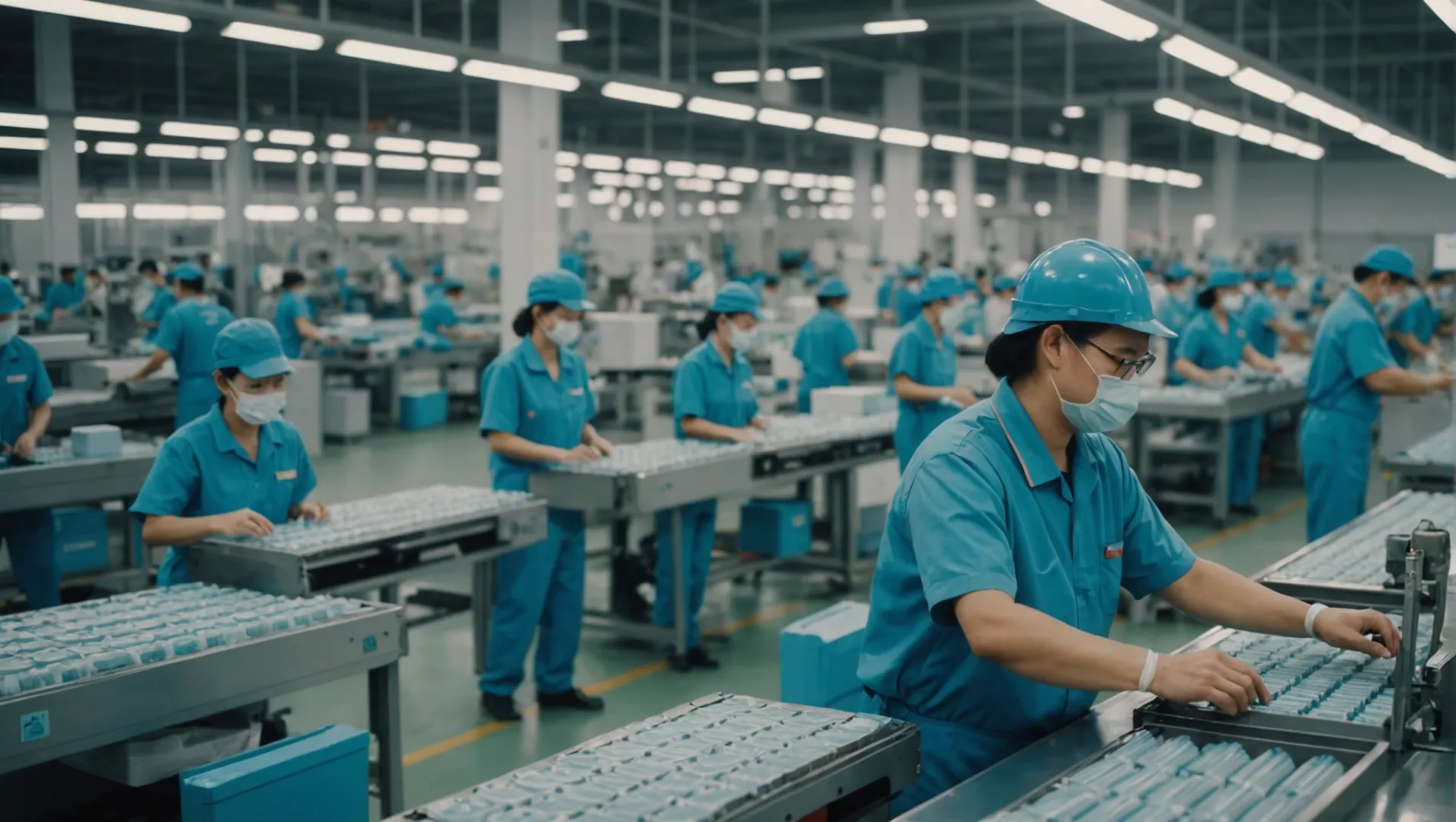
Il potere delle catene di fornitura
La Cina ha costruito meticolosamente una vasta rete di fornitori e produttori nel corso degli anni, creando una rete altamente efficiente. sistema di filiera1 che supporta la produzione dei purificatori d'aria. Questa solida infrastruttura garantisce la pronta disponibilità di tutti i componenti necessari, dalle parti in plastica ai moduli elettronici, riducendo i tempi di consegna e i costi.
Competenza nella produzione
Con decenni di esperienza nella produzione di elettronica e beni di consumo, la Cina offre un'esperienza senza pari nella produzione di purificatori d'aria di alta qualità. Questa competenza non riguarda solo il know-how tecnico, ma anche la capacità di innovare e adattarsi rapidamente alle richieste del mercato.
Efficienza dei costi
Uno dei fattori critici che rendono la Cina un attore dominante è l'efficienza dei costi. La produzione in Cina rimane conveniente grazie al minor costo del lavoro e alle economie di scala. Anche in presenza di potenziali aumenti tariffari, come si è detto nelle discussioni sulla delocalizzazione della produzione in Paesi come la Malesia, il vantaggio di costo della Cina spesso supera queste spese aggiuntive.
Innovazioni e progressi tecnologici
La Cina non si limita alla produzione di massa, ma è anche all'avanguardia nell'innovazione. Molte aziende cinesi investono pesantemente in ricerca e sviluppo per migliorare le tecnologie di purificazione dell'aria, rendendole più efficaci e accessibili ai consumatori di tutto il mondo. Questo ciclo di innovazione continua fa sì che la Cina rimanga un leader sia in termini di quantità che di qualità.
Influenza del mercato globale
La posizione dominante della Cina nella produzione di depuratori d'aria le conferisce anche un'influenza significativa sui prezzi e sulle tendenze tecnologiche globali. In qualità di maggiore produttore, può fissare prezzi competitivi che gli altri Paesi faticano ad eguagliare, guidando al contempo i progressi tecnologici che plasmano il futuro del settore.
In conclusione, mentre la Malesia sta emergendo come un concorrente formidabile, la combinazione di efficienza della catena di fornitura, esperienza produttiva, vantaggi di costo e spirito innovativo della Cina continua a consolidare la sua posizione di leader nel mercato dei purificatori d'aria.
Le catene di fornitura cinesi riducono i costi di produzione dei purificatori d'aria.Vero
Le efficienti catene di fornitura cinesi garantiscono la disponibilità dei componenti, riducendo i costi.
La Malesia ha superato la Cina nell'innovazione dei purificatori d'aria.Falso
La Cina è leader nell'innovazione dei depuratori d'aria grazie ai notevoli investimenti in R&S.
Come sta emergendo la Malesia nel mercato dei depuratori d'aria?
Con l'evoluzione del mercato dei purificatori d'aria, la Malesia si sta posizionando come un concorrente degno di nota accanto a giganti affermati come la Cina.
La Malesia sta emergendo nel mercato dei depuratori d'aria grazie al potenziamento delle sue capacità produttive e all'attrazione di marchi globali, nonostante sfide come i costi di produzione più elevati rispetto alla Cina.
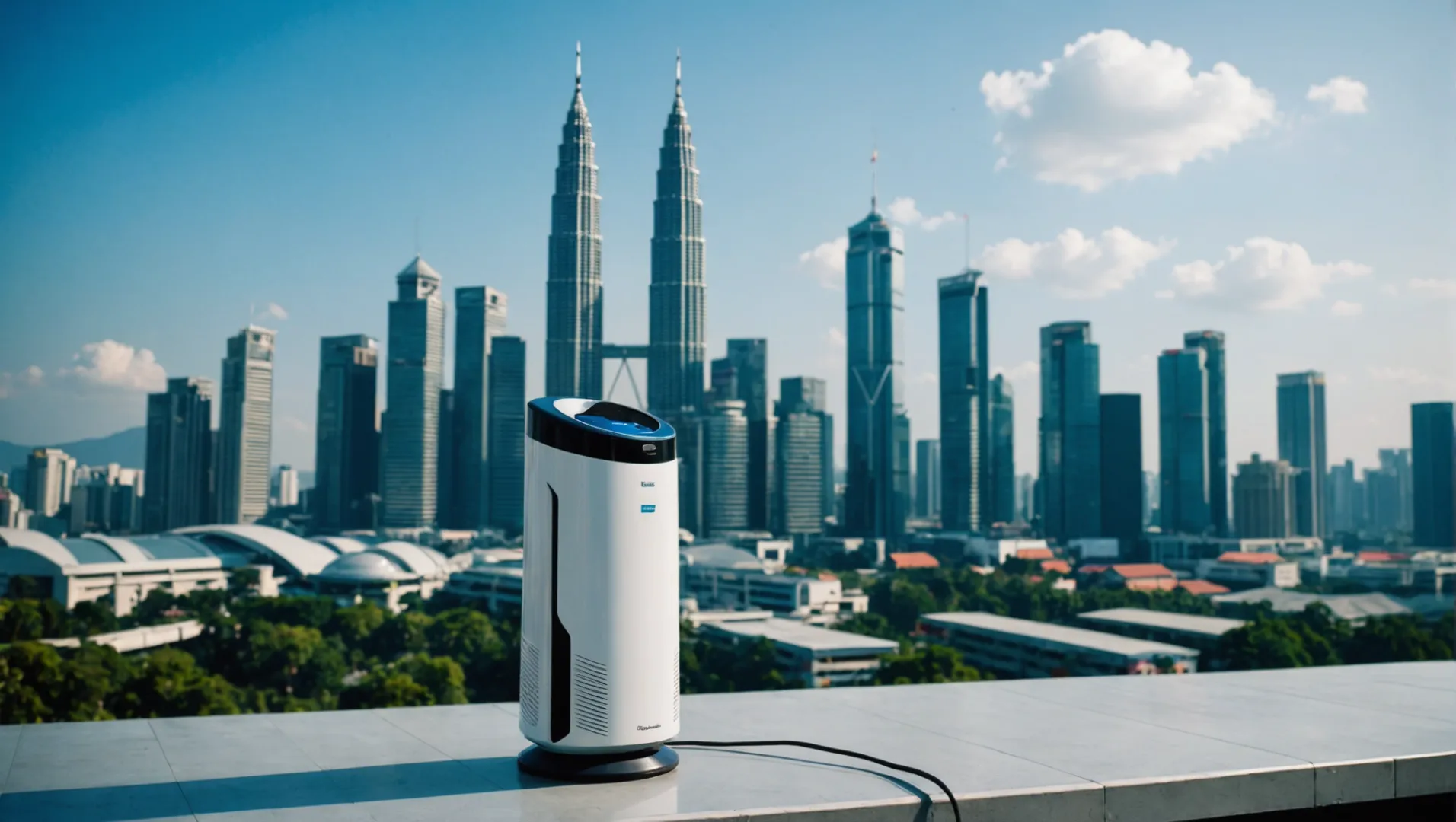
La posizione strategica della Malesia nel mercato
L'ascesa della Malesia nel mercato dei depuratori d'aria può essere attribuita alla sua posizione strategica e alla crescente base industriale. Questa nazione del sud-est asiatico offre un ambiente favorevole per i produttori che desiderano diversificare le loro sedi di produzione. Marchi globali, come Dyson, stanno già stabilendo una presenza in Malesia, beneficiando delle crescenti capacità industriali del Paese.
L'impatto delle politiche commerciali globali
Anche i cambiamenti nelle politiche commerciali globali, in particolare le tariffe, stanno influenzando lo spostamento della produzione verso la Malesia. Con i potenziali dazi che aumentano i costi dei prodotti cinesi, molte aziende stanno esplorando luoghi alternativi per la produzione. La Malesia rappresenta un'opzione valida grazie al suo ambiente politico relativamente stabile e al miglioramento delle infrastrutture produttive.
Sfide e opportunità
Se da un lato la Malesia presenta molte opportunità, dall'altro deve affrontare delle sfide. Uno degli ostacoli principali è rappresentato dai costi di produzione più elevati rispetto alla Cina. Questo aumento, stimato in circa 10-15%, è determinato da fattori quali l'efficienza della manodopera e la necessità di importare componenti chiave dalla Cina. Tuttavia, i potenziali benefici tariffari e i vantaggi strategici di una catena di fornitura diversificata possono compensare questi costi.
Il ruolo dei marchi locali e dell'innovazione
I marchi locali malesi stanno iniziando a lasciare il segno nel settore dei purificatori d'aria, grazie all'innovazione e ai prezzi competitivi. La presenza di questi marchi non solo migliora la posizione della Malesia nel mercato globale, ma stimola anche la crescita economica locale.
Confronto tra i componenti chiave
| Fattore | Cina | Malesia |
|---|---|---|
| Efficienza del lavoro | Alto | Moderato |
| Costo di produzione | Più basso | Maggiore di 10-15% |
| Dipendenza dall'importazione dei componenti | Basso | Alto |
Comprendendo queste dinamiche, le aziende possono decidere con cognizione di causa dove produrre i propri depuratori d'aria. Il passaggio alla Malesia potrebbe potenzialmente ridisegnare il panorama di questo settore essenziale, con un impatto sui consumatori di tutto il mondo. Per una visione più approfondita di impatti della politica commerciale globale2 e Le capacità produttive della Malesia3, esplorare ulteriori letture e analisi.
La Malesia ha costi di produzione inferiori a quelli della Cina.Falso
I costi di produzione della Malesia sono superiori di 10-15% rispetto alla Cina.
Dyson sta stabilendo una presenza in Malesia.Vero
Dyson è uno dei marchi globali che si sta insediando in Malesia.
Quali sono i fattori chiave che influenzano i turni di produzione?
I cambiamenti di produzione nel settore dei depuratori d'aria sono guidati da molteplici e complessi fattori, che rimodellano il panorama produttivo globale.
I fattori chiave che influenzano i cambi di produzione includono l'efficienza dei costi, la solidità della catena di approvvigionamento, i cambiamenti geopolitici e i progressi tecnologici. Questi elementi determinano il luogo in cui le aziende scelgono di fabbricare i loro prodotti, con un impatto significativo sul settore dei purificatori d'aria.
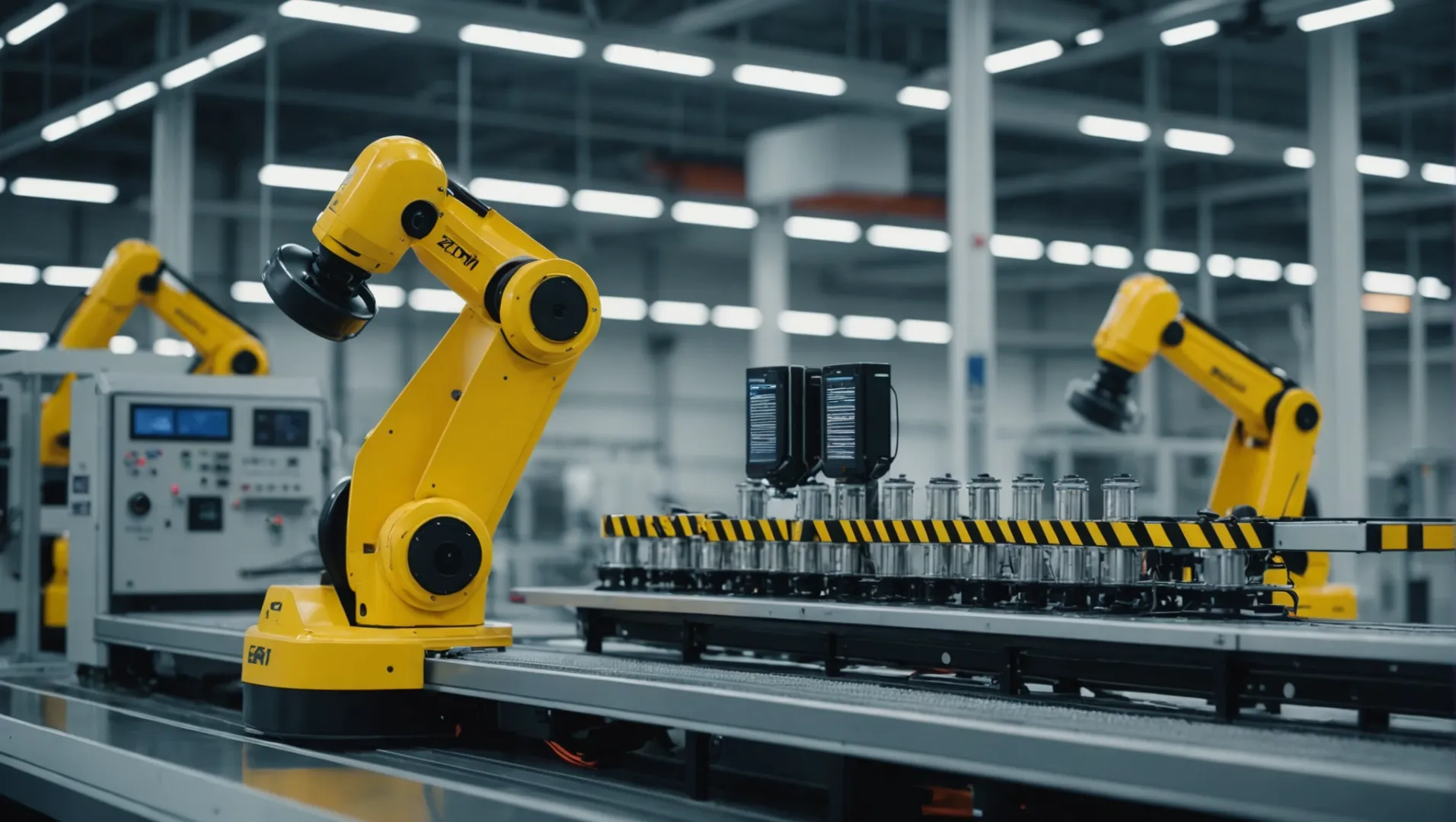
Efficienza dei costi
Uno dei principali fattori che influenzano i cambi di produzione è l'efficienza dei costi. Ad esempio, l'attuale leadership della Cina nella produzione di depuratori d'aria è in gran parte attribuita alla sua capacità di mantenere costi più bassi grazie all'efficienza della manodopera e a una catena di fornitura ben integrata. Tuttavia, con l'evoluzione delle tariffe e di altri fattori economici, le aziende potrebbero trovare vantaggiosa la delocalizzazione in Paesi come la Malesia, dove i costi iniziali possono essere più elevati ma possono offrire risparmi a lungo termine. Comprendere queste dinamiche è fondamentale per i produttori che cercano di ottimizzare i propri costi operativi.
Robustezza della catena di fornitura
Il dominio storico della Cina nel settore manifatturiero deriva dalla sua solida rete di supply chain. Questa infrastruttura sostiene diverse industrie, tra cui la produzione di purificatori d'aria, garantendo un flusso costante di materiali e componenti. Tuttavia, alcuni componenti chiave dei depuratori d'aria sono importati dalla Cina, anche da produttori malesi come Dyson. Quando le catene di approvvigionamento globali subiscono interruzioni, diventa evidente la necessità di una diversificazione, rendendo i Paesi con capacità produttive in crescita, come la Malesia, delle alternative interessanti.
Cambiamenti geopolitici
Il clima geopolitico influenza pesantemente le decisioni di produzione. Ad esempio, i cambiamenti nelle politiche commerciali degli Stati Uniti sotto diverse amministrazioni possono portare a cambiamenti significativi. Il potenziale aumento dei dazi sulle merci cinesi ha spinto alcuni produttori a considerare la possibilità di trasferirsi in altri Paesi asiatici. La Malesia spicca come opzione valida grazie alla sua posizione strategica e alla base industriale emergente.
Progressi tecnologici
Anche i progressi tecnologici giocano un ruolo nei turni di produzione. Con le capacità manifatturiere della Malesia in rapida crescita, l'integrazione di tecnologie avanzate potrebbe aumentare ulteriormente la sua attrattiva. Le aziende che vogliono essere all'avanguardia devono soppesare i vantaggi dell'adozione di nuove tecnologie rispetto ai costi e ai potenziali rischi connessi.
Questi fattori sono interconnessi e complessi e richiedono alle aziende di rimanere informate e adattabili. La decisione di spostare la produzione non si basa solo su un elemento, ma su una combinazione di influenze che possono plasmare il panorama futuro del settore. Per saperne di più sull'interazione di questi fattori, si consiglia di esplorare impatti geopolitici sulla produzione4 o progressi nelle tecnologie di produzione5.
La Cina è leader nella produzione di purificatori d'aria grazie all'efficienza dei costi.Vero
La Cina mantiene costi più bassi grazie all'efficienza della manodopera e all'integrazione della catena di fornitura.
L'industria manifatturiera malese manca di progressi tecnologici.Falso
Le capacità produttive della Malesia stanno crescendo grazie alle tecnologie avanzate.
Come si confrontano i costi di produzione tra Cina e Malesia?
La comprensione dei costi di produzione in Cina e Malesia può guidare le decisioni strategiche del settore dei purificatori d'aria.
I costi di produzione in Cina sono generalmente più bassi grazie a una catena di approvvigionamento consolidata e all'efficienza produttiva. La Malesia, pur essendo leggermente più costosa, offre potenziali risparmi grazie alla riduzione delle tariffe e alle crescenti capacità locali.
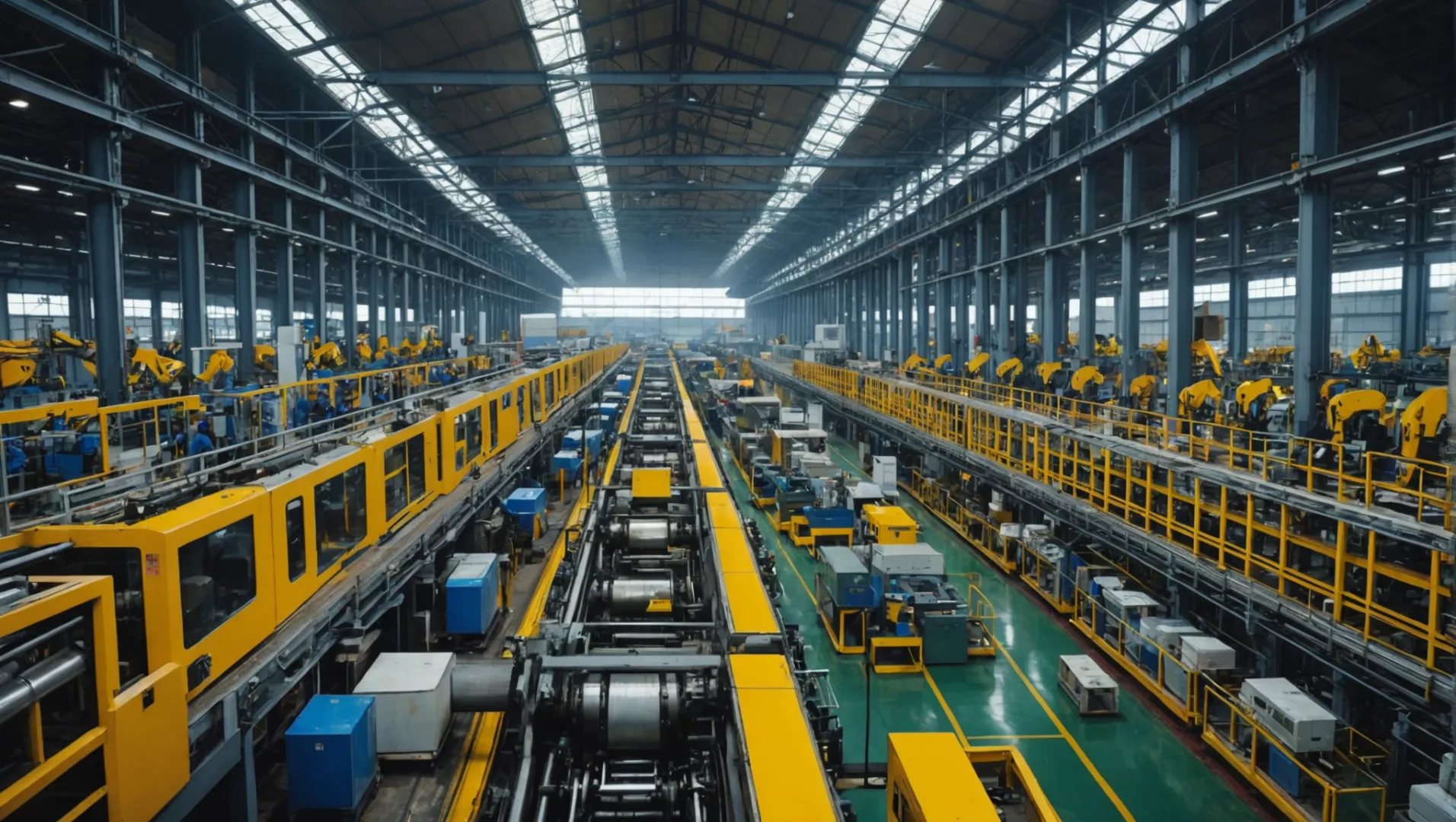
Confronto tra i costi della manodopera
Uno dei fattori più significativi che incidono sui costi di produzione è la manodopera. In Cina, il costo del lavoro è aumentato costantemente nel corso degli anni a causa della crescita economica e dell'aumento del tenore di vita. Tuttavia, il Paese beneficia ancora di un'ampia manodopera qualificata che favorisce l'efficienza produttiva.
La Malesia, invece, offre un vantaggio competitivo grazie a un costo del lavoro generalmente più basso. Poiché il Paese continua a sviluppare il settore manifatturiero, le aziende possono trarre vantaggio da una forza lavoro più conveniente senza compromettere il livello delle competenze.
Valutare l'efficienza della catena di fornitura
La consolidata catena di approvvigionamento cinese offre ai produttori un accesso immediato a componenti, materiali e competenze essenziali. Questo non solo riduce i costi di produzione, ma garantisce anche tempi di consegna più rapidi.
La Malesia, pur sviluppando la propria catena di approvvigionamento, fa ancora affidamento sull'importazione di componenti chiave dalla Cina. Questa dipendenza può aumentare i costi di produzione a causa delle tasse di importazione e delle spese logistiche. Tuttavia, man mano che la Malesia migliora le sue capacità produttive, questi costi dovrebbero diminuire.
Impatto delle tariffe e delle politiche commerciali
Con l'evoluzione delle politiche commerciali globali, le tariffe sono diventate un fattore cruciale per le aziende che cercano di ottimizzare i costi di produzione. Ad esempio, se le nuove tariffe statunitensi sulle merci cinesi dovessero aumentare in modo significativo, lo spostamento della produzione in Malesia potrebbe mitigare queste spese.
Un potenziale aumento delle tariffe 60% sui prodotti cinesi potrebbe incentivare i produttori di purificatori d'aria a trasferirsi in Malesia, dove possono godere di tariffe di esportazione ridotte verso i principali mercati come gli Stati Uniti.
Tabella riassuntiva dei fattori di costo della produzione
| Fattore | Cina | Malesia |
|---|---|---|
| Costo del lavoro | In aumento | Più basso |
| Efficienza della catena di fornitura | Altamente efficiente | Sviluppo |
| Dipendenza dall'importazione dei componenti | Basso | Alto |
| Impatto tariffario | Potenzialmente elevato con gli Stati Uniti. | Previste tariffe più basse |
Le infrastrutture in crescita e le politiche commerciali favorevoli della Malesia rappresentano un'alternativa interessante per i produttori che cercano di bilanciare i costi con l'accessibilità al mercato. Tuttavia, le aziende devono soppesare questi vantaggi con le consolidate efficienze della Cina.
Per ulteriori approfondimenti su come le politiche commerciali influenzano il settore manifatturiero globale, si consiglia di esplorare impatti del commercio globale6. Questa risorsa fornisce un contesto più ampio di come le normative internazionali possano plasmare le strategie di produzione.
La Cina ha costi di produzione inferiori a quelli della Malesia.Vero
La Cina beneficia di una catena di approvvigionamento consolidata e di efficienze produttive.
Il costo del lavoro in Malesia è superiore a quello della Cina.Falso
La Malesia offre un costo del lavoro inferiore rispetto alla Cina, favorendo la competitività.
Conclusione
Mentre la Cina domina oggi, i rapidi progressi della Malesia potrebbero ridisegnare il futuro della produzione di depuratori d'aria.
-
Scoprite come i vantaggi della catena di approvvigionamento cinese influiscono sulla produzione di depuratori d'aria..: Il dominio della Cina nella produzione di depuratori d'aria deriva dall'efficienza dei costi e dalla solida infrastruttura della catena di approvvigionamento. La Cina eccelle nella produzione di purificatori d'aria ... ↩
-
Scoprite come le politiche commerciali globali influenzano le decisioni di produzione a livello globale..: La globalizzazione del settore manifatturiero sta subendo un cambiamento, in quanto la politica commerciale, i nuovi accordi governativi e le normative creano la necessità di rinnovare le strategie. ↩
-
Scopri le crescenti capacità produttive della Malesia nel settore dei depuratori d'aria..: Il mercato dei depuratori d'aria della Malesia è stato valutato a 79,56 milioni di dollari nel 2023 e si prevede una crescita robusta nel periodo di previsione con un CAGR del 10,32% ... ↩
-
Scopri come le dinamiche geopolitiche influenzano le sedi produttive a livello globale..: Le tensioni geopolitiche potrebbero minacciare l'accesso dei produttori di prodotti elettronici e di energia rinnovabile ai minerali critici che ... ↩
-
Scoprite le innovazioni che danno forma ai moderni processi produttivi: 1. Digitalizzazione e Industria 4.0. La digitalizzazione ha avuto un impatto profondo sul settore manifatturiero, consentendo alle aziende di ottimizzare i processi, ... ↩
-
Approfondisci l'influenza delle politiche commerciali sulle dinamiche produttive..: Il potenziale impatto sui margini di profitto delle restrizioni commerciali spinge la maggior parte dei produttori a cercare opzioni per ridurre i costi dei fattori di produzione approvvigionandosi da ... ↩


